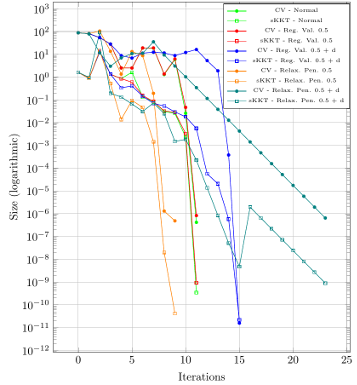Enhancement of WORHP Using Parametric Sensitivity Analysis with Respect to Hessian Regularisation and Constraint Relaxation (WUPS)
| Working Group: | WG Optimization and Optimal Control |
| Leadership: | Dr.-Ing. Mitja Echim (E-Mail: mitja.echim@topas.tech) |
| Processor: | Dr. Sören Geffken |
| Funding: | ESA |
| Project partner: | |
| Time period: | 01.11.2015 - 31.12.2015 |

Parametric Sensitivity Analysis (PSA) is a mathematical framework that enables
deterministic local post-optimality analysis of optimisation problems. WORHP uses an SQP
method to solve nonlinear optimisation problems. In every outer SQP iteration, WORHP
poses a quadratic subproblem to be solved by the internal QP solver. The optimal solutions
of these subproblems serve as search direction to determine the next SQP iterates.
Post optimality analysis can be applied to these subproblems in order to improve their
solutions.
The aim of this activity is to implement different algorithms that take profit from the post
optimality analysis on the subproblems. WORHP uses Hessian regularisation and constraint
relaxation techniques to guarantee the solvability of the subproblems. These quantities are
regarded as perturbations. The parametric sensitivities are used to compensate the effects
of these perturbations.
Using Taylor series predictions of the QP behaviour with different regularisation and
relaxation values can be computed. Thus, the overall SQP algorithm is improved by
integration of these predictions in order to adjust internal parameters and by calculation of
compensating search directions.

